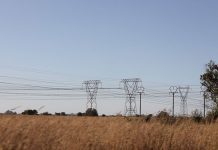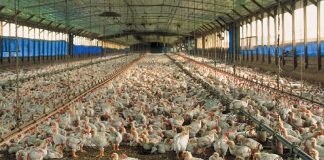“Land has been at the heart of the historic injustice of dispossession and stripping the dignity of the African people,” President Jacob Zuma said at the ANC’s 103rd anniversary in Cape Town in January.
Commenting on Zuma’s statement, former Agri SA chairperson, Dr Theo de Jager, said that the Achilles heel of land reform in South Africa had never been the policies that informed the way in which it should be implemented, but rather the incompetent department that had failed to properly implement those policies.
Farmers in the Witzenberg region, Western Cape, took matters into their own hands and created the Witzenberg Partnership, saying that they would finance and reform projects on more than 4 000ha of land. The partnership aimed to implement around 50 projects. Agriculture minister, Senzeni Zokwana, said at the Grain SA Congress in Bothaville, that it was not government’s intention to replace white farmers with black farmers through its land reform process.
“Our farmers are the best in the world and we owe it to them to keep them in production,” he said, adding that land
reform would not be managed in such a way that it compromised food security. Some farmers’ unions, however, rejected land reform policy proposals put forward by the government, saying these proposals would in fact harm the
commercial sector.
Kwanalu CEO, Sandy la Marque, said government’s 50/50 plan and the 12 000ha or two-farm cap on land ownership were some of the proposals that the commercial agriculture sector felt would cause irreparable damage should
they be steam-rollered through parliament.
At the Nampo Harvest Day in Bothaville, Agri SA president, Johannes Möller, said the organisation believed that
the categorisation of farms by size and limitations on farm sizes was a step backwards for South Africa.
At a land reform conference in Port Elizabeth in June, Aggrey Mahanjana, secretarygeneral of Afasa, said black farmers understood the challenges government faced in achieving transformation targets, but that after 21 years of discussions, frustration was rising.
He said the black farming community had concerns about implementation based on government’s track record, which until now, had proved to be less than adequate. In August, Parliament held public hearings on the controvercial Expropriation Bill.
The South African Institute for Race Relations (SAIRR) and Solidarity opposed the bill, warning that it could be unconstitutional. Agri SA was less critical, saying that it would prevent Zimbabwean style land grabs.
Annelize Crosby, legal officer of Agri SA, said the organisation was more concerned about a crucial clause in the agricultural land bill, which stated that the Department of Agriculture, Forestry and Fisheries should act as the custodian of all farming land at the ANC’s national general council meeting in October, the party accepted the suggestion that farmers share half of their farms with their workers.
At the time, Crosby said she was “disheartened by the announcement”. “The announcement by the ANC will only
confuse people again,” she said. “Nkwinti had allowed four years for an investigation of 50 pilot projects to empower farm workers. Twelve projects and funding for these projects had been approved only a few weeks ago.”












